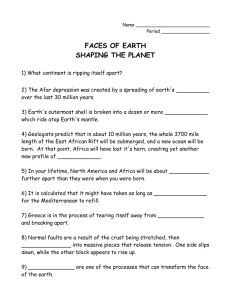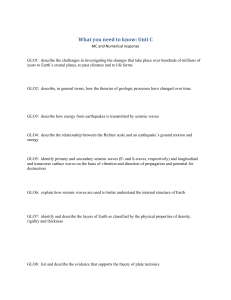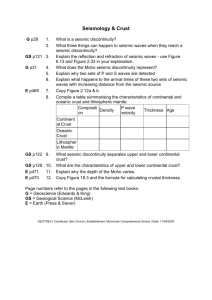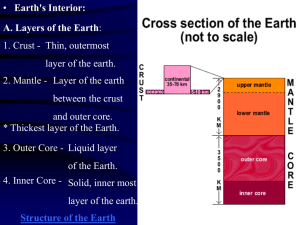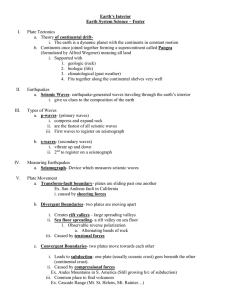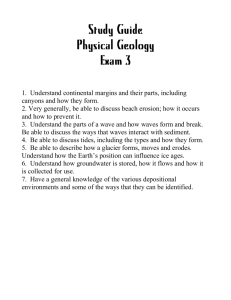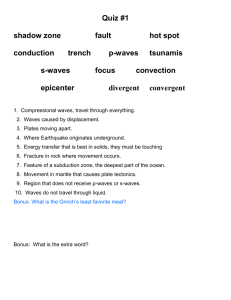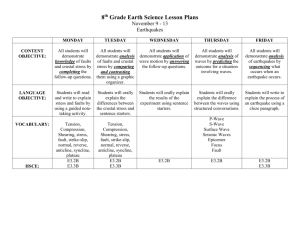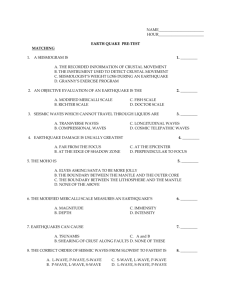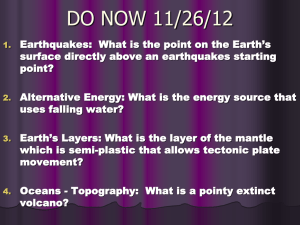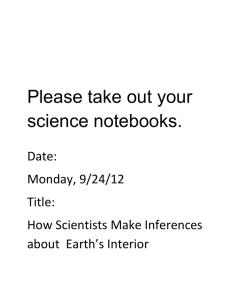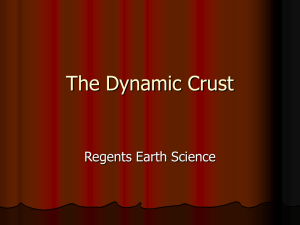Seeing from Hearing
advertisement
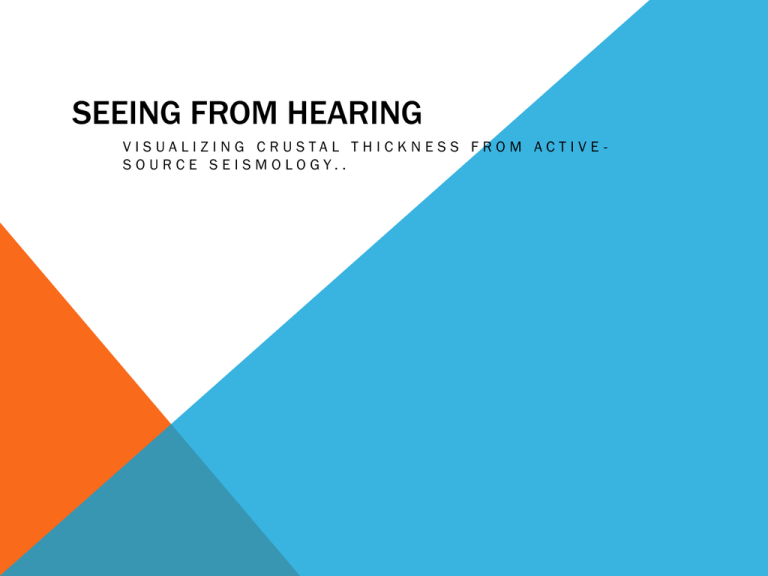
SEEING FROM HEARING VISUALIZING CRUSTAL THICKNESS FROM ACTIVE S O U RC E S E IS M O LO GY.. WHY CARE? • Understanding the fine details of what is happening beneath the Earth is largely an open ended scientific inquiry. • Studying the magma body below the sea floor could contribute to understanding and perhaps someday harnessing hydrothermal vents. ? WHAT Mid-ocean ridges are responsible for resurfacing 2/3 of Earth’s surface and account for 80% of Earth’s volcanism. However, seismic reflection surveys cannot image the lower crustal region. In my study we are using ‘wide-angle’ seismology to model the area beneath the ridge axis. Wide-angle refers to the the large distances (30-50km) between our source (air gun) and the receivers (seismometers). ACTIVE-SOURCE SEISMIC Just like a stone in a river produces waves we use air guns from a boat to shoot the ground. According to Snell’s law the waves will come back up to us, and we can see everything that they passed through. MOHOROVICIC DISCONTINUITY The area between the mantle and the crust, or more commonly referred to as the ‘Moho’. It is a discontinuity that gives us very clear reflections of our waves. TURNING HEARING INTO SEEING We have 68 (OBS) Ocean Bottom Seismometers that let us listen to the waves. The reflections off of the Moho are not very easy to tell apart from other vibrations, and so I have to go in and ‘pick’ out the spots I think the waves are bouncing off the Moho. THE WAVES THAT GO THROUGH THE EARTH CAN BE QUITE COMPLEX Each of these colored lines is the ray(wave) paths through the crust VISUALIZING With a little math and help from programming we can discern from the travel times and produces images of the lower crust and velocity of the rays that go through it. CONCLUSIONS.. With imaging we can slowly begin to understand the nuances of the crustal structure. Sometimes we see what we predicted and other times get a complete shock, but either way they propose new questions that will someday be answered by generations like you.
